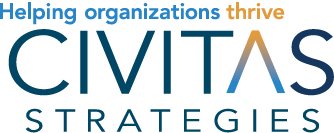Lessons From a Recent Tax Court Case
Can a taxpayer claim:
* An exclusive room for her business when she walks through it to get to her bedroom?
* 70% of her Internet expense when it's packaged with her telephone and cable television bill?
* A portion of her electric utility charges without receipts?
* The cost of business meals without records?
* The cost of office supplies with only checking account statements?
These were the issues raised in a recent Tax Court case (Lauren Miller vs. IRS Commissioner, T.C. Summary Opinion 2014-74).
This case did not involve a family child care provider. And the case cannot be relied on if you find yourself being audited. But the Court's decision can teach us lessons about claiming an exclusive use room and what records are necessary to claim business deductions.
Exclusive Use Room
The general rule is that family child care providers cannot claim a room as exclusively used in her business unless the room is never used personally (see IRS Code Section 280A(a)).
The taxpayer in this case had a small apartment and had to walk through her office to get to her bedroom. The court said that her personal use of this space was "de minimis" (minor use) and allowed her to claim expenses for her apartment. There is another Tax Court case that says the same thing.
Lesson: You should not try to claim an exclusive use room if your family uses it even occasionally for personal purposes. But, walking through such a room shouldn't destroy its exclusive use.
Internet Expense
The taxpayer paid for a package of services that included cable television, telephone and Internet services. The cable company did not break out the cost of each service in her bill. The Court divided the charges equally among these three services. The taxpayer estimated that she used 70% of the Internet for her business. The Court wrote that she was not required to keep a log of her business use of the Internet and accepted her 70% figure.
Lesson: It's reasonable to divide a cable bill equally among the various services. It's not clear what records/evidence the taxpayer gave the Court about her Internet use. I would not recommend that you guess the business portion of your Internet bill. Use your Time-Space Percentage unless you track your actual business use for at least two months.
Electric Utility Charge
The taxpayer produced a spreadsheet showing how much she paid for her electric utility. But, she offered no additional records (paid receipts, copies of her electric bill) to substantiate her expense. The Court denied this deduction.
Lesson: Don't expect to be allowed to deduct an expense simply because you write it down on a ledger or enter it into the KidKare software program. To substantiate your electric utility expense, show cancelled checks, direct deposits from your monthly checking account statement, or a copy of your electric bills.
Business Meals
The taxpayer dined out with business clients, but failed to provide adequate documentation and the Court denied this expense.
Lesson: If you are going to claim business meals you must follow a strict procedure and keep the following records: meal receipts, the name of the people you ate the meal with, and the topic of the conversation that relates to your business.
Office Supplies
The taxpayer claimed deductions for office supplies and produced her checking account statements that showed she made purchases at office supply stores. But, the Court denied these expenses because she provided no evidence as to the specific items she purchased.
Lesson: The general rule is that you must have an "adequate record" to claim business deductions. A receipt is the best record. Cancelled checks, checking account statements, credit/debit card monthly statements by themselves are likely to be challenged by the IRS. You can increase the chances that your expenses will be allowed if you: write a note on the memo line of your cancelled check that identifies what you bought, take pictures of your purchases, and be able to assert to an auditor what specific items were purchased.
Uniform
The taxpayer was denied a deduction for several evening dresses that she purchased to attend various business events. The Court wrote that clothing can only be deducted as a uniform if it "was not suitable for general or personal wear."
Lesson: The only clothing that a family child care provider could deduct as a business expense would be something that was not suitable to be worn outside of your home. The only clothing that I can think of that meet this test are scrubs. You could deduct t-shirts and sweatshirts that have your business name, logo, or a general statement about family child care on them. Deduct this as advertising, not as a uniform.
This case offers many lessons that can help you improve your record keeping and claim higher business deductions.
Tom Copeland - www.tomcopelandblog.com
Image credit: https://www.flickr.com/photos/182229932@N07/48322402061
For more information, see my book Family Child Care Record Keeping Guide.

